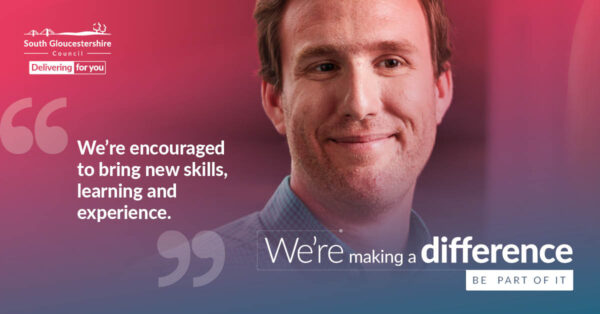It is no secret that local authorities in England are struggling to recruit permanent social workers: one in five children’s social work posts lay vacant in September 2022.
However, even during this challenging time nationally, South Gloucestershire council has been able to grow its permanent workforce, which now stands at 106.7 full-time equivalent permanent caseholding social workers this year, compared to 75.3 at the same point last year – the most that have ever been employed within children’s services.
This has, in part, been achieved through agency staff deciding to take on permanent roles at the council.
Shanti Eaves, head of service for localities, corporate parenting and fostering, highlights the work that has been done to create a clear career development structure, which means that agency workers are aware of the opportunities available to them if they do decide to go permanent.
Carol, an experienced social worker and now team manager on secondment, is clear that this was pivotal for her: “I’ve been agency since 2016, and the reason I decided to go permanent was career progression.
“I wouldn’t have been offered the management role if I was an agency worker. You miss out on those opportunities, so it did feel like now was the right time to change.”
Despite being a locum for much of her time at South Gloucestershire, Carol says she has always felt part of a supportive team.
Carol works in one of the six access and response teams, which are part of South Gloucestershire’s £15m pound investment in creating smaller teams, increasing staff numbers and regularly reviewing caseloads to ensure they are manageable.
Shanti highlights the importance of this investment in children’s services: “We’ve been able to review caseloads, make sure that they’re appropriate, and we’ve reinvested in our management development programme and ensuring we have permanent managers in place to support our staff.”
Investing in teams
Shanti comments that the creation of additional teams at South Gloucestershire, like the therapeutic support team, is part of the council’s social work practice model. This involves a range of different practitioners, including social workers, working together to support a family.
Mike, another agency social worker who recently became permanent, was attracted to this way of working with families, as well as the council’s use of the Signs of Safety model.
“There’s a lot of mind mapping work and time for social workers to reflect, review and discuss cases before they go out and visit families,” he says.
Shanti says that investing in teams – by developing and enhancing specialist practice areas in fields such as unaccompanied asylum-seeking children, adoption and exploitation – has provided opportunities for practitioners to enhance their social work skills and knowledge in these areas.
Investment in staff

Photo: South Gloucestershire Council
One of the benefits of having a range of different teams within the service is that it creates opportunities for experienced social workers to progress – even if they don’t want to become a manager.
One example Shanti gives of enabling practitioners to progress in their area of practice is a hub of workers who are specialists in supporting unaccompanied children who are seeking asylum. “They have really got very specialist skills and knowledge,” she says.
“Not everyone wants to be a manager. But as a social worker you do want to progress, and that’s important. And we give you those skills. But also, that benefits the children and families we work with – that we’ve got some very experienced, highly skilled social workers that can work with those families that have got more complex needs.”
Shanti also points to the role of practice development managers, who have specialisms in particular areas – such as working with children who are at risk of exploitation. “They support the social workers to develop that kind of expertise,” she says.
“We’re constantly learning, constantly developing. And I think you can get that in a smaller council or organisation.”
Smaller local authority
The size of the council was also referred to by Michelle, a team manager who returned to South Gloucestershire earlier this year.
“It’s a small local authority so there’s a real sense of knowing everyone in the service,” she said.
Michelle had previously worked at South Gloucestershire for six years, leaving in 2018, but came back after hearing from former colleagues that it was a good place to work, with managers who were visible and available.
The size of the authority also encourages innovation and creativity, says Shanti, who says: “It is a forward-thinking authority.”
But, due to strong regional partnerships, the authority also escapes some of the downsides of being small, such as missing out on opportunities or funding, she adds.
”We are proud of our practitioners and all support staff across social care and the impact they are having on improving outcomes for our children and families. We might be small but we’re part of something bigger as well, so it’s a very good place to be!”
If you’re interested in opportunities at South Gloucestershire Council, check out the latest vacancies.




 Facebook
Facebook X
X LinkedIn
LinkedIn Instagram
Instagram